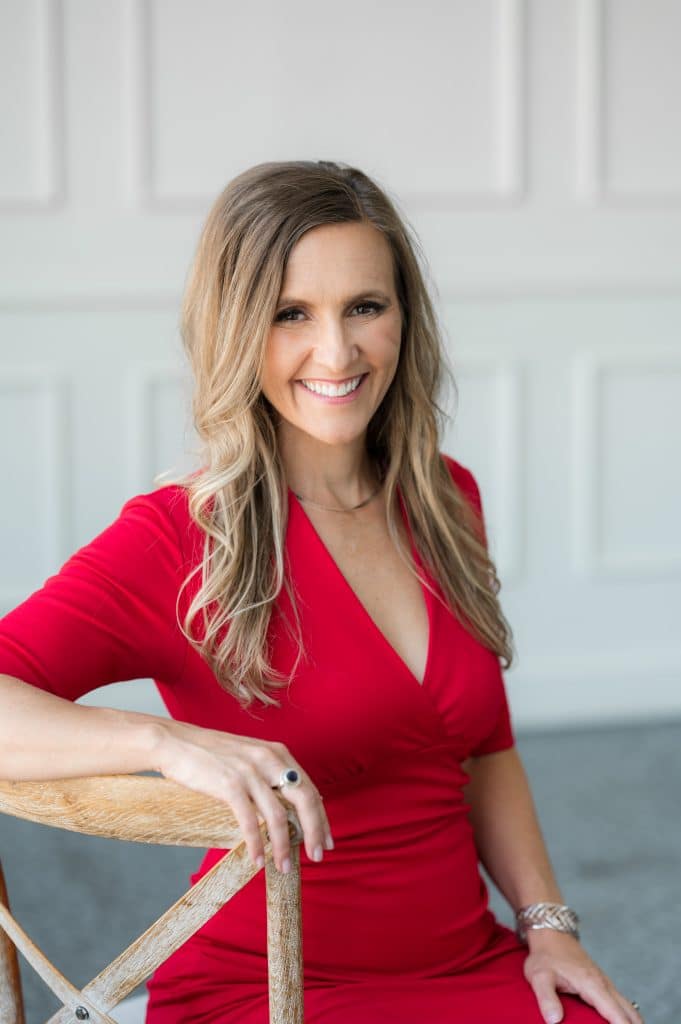When it comes to a marketing coaching business, most people don’t really know where to start. The ideas are there—what you want to sell, how you want to sell it—but the process itself is a little muddled. How does one start a successful at home business that earns them the profit they desire?
Jessica Yarbrough, a professional business coach, has the answers. A veteran of online marketing for over a decade, Jessica is the founder and owner of CEO Babe, a business that teaches people—specifically women—how to leverage their unique skill set to create a high-end coaching and/or consulting business. Jessica’s been doing this for years and has more than enough experience to inspire and help fellow entrepreneurs towards making their own business and to teach them what a marketing coaching business can do for them.

The CLICK Technique and Marketing Coaching Business: “K” for “Keep Going”
Before we get into the details of a marketing coaching business, however, we can’t forget to talk about The CLICK Technique! A five-step process that I’ve invented, The CLICK Technique is like boot camp for people who want to get better and succeed in the world of online marketing. Each letter in the word “CLICK” stands for something else—another step that’s necessary to take in order to find the success we’re all looking for in the end.
In the case of marketing coaching business, we’ll be focusing on the last letter in the word “CLICK”—“K”, which stands for “keep going”. After you’ve done the work and put in the elbow grease with your ad campaigns, your cold e-mails, and fostering relationships with customers old and new, you’ve got to make sure you’re still pushing forward in order to find success. You’ve got to keep going if you want to find the results you’re looking for! After all, dreams don’t come true overnight.
With a marketing coaching business, the very same applies. You won’t get the massive audiences you want in just one day—you’ve got to keep pushing at it, and taking care of the relationships you’ve made, as well as reach out to more people in order to spread the word. You’ve got to keep going in order to become a true success, and Jessica agrees that the best way to find your niche is to keep on trying.
Marketing Coaching Business: The Top Tips and Tricks
So, with that in mind, what can we do when attempting to start our own marketing coaching business? What pitfalls should we avoid, and what mysteries are easy to dispel?
People tend to think that starting their own marketing business is as easy as buying a software and simply turning it on. However, if you don’t understand strategy—or how to sell—how are you going to make a high converting webinar? You need to know the basics, the facts, and the do’s and don’ts when it comes to starting your own marketing coaching business.
Tip 1: Flesh It Out
The most important thing about a marketing coaching business is making sure that you’ve got something worthwhile on your hands. In Jessica’s case, the first few months of the program she runs for her clients rely on fleshing out the program and the avatar. You need a strong foundation if you’re going to build anything upon it, after all, and people who tend to jump into things without fully understanding what they’re committing to tend to fall short of their goals.
After you’ve completed that, you’re ready for the “big dive”—which is when all is said and done, the nitty gritty part of planning your own business. Learning how to scale, what funnels are, and taking on the task of email marketing becomes a little easier when you’ve already got something strong to rely on.
In the end, Jessica prefers to take an organic approach to marketing coaching business—build your offer, validate the offer by selling it, then use that foundation to build your marketing. If you’ve already got a reliable source of influence based on the validation you’ve gotten, then marketing what you’ve got to offer to other people becomes easier. Giving your product a sense of validation makes others more willing to participate.
Tip 2: Pilot Your Program
After you’ve fleshed everything out, the next step in marketing coaching business is to pilot your program. As stated, you need to make sure people want what you’re selling, and that your idea is a good one. Most of the time, we think our own ideas are brilliant when, in reality? They’re not. So, rather than building out massive marketing machine, reach out to your circle of influence (virtually and in real life) and sell to that core market first. If people are buying it and you’re walking them through that process, you’ll get feedback and find ways to improve.
In Jessica’s case, she works mostly with women—mothers who wanted a home-based income, and the need for more women leaders in the marketing world was her primary focus. So, she piloted her program to that core audience—women who are educated and who have a unique skill set that is looking to break free and make their own business, and women who have been dipping their toes but they haven’t created a system or a process. I think it’s safe to say that her endeavors were a huge success, in terms of a marketing coaching business.
And, even so, Jessica still wasn’t afraid to rebrand her business! The vision she had differed from the initial product she put out onto the world, and she didn’t think twice before undergoing a makeover, so to speak, to turn her business into what it is now—something that targets the women stated above. That’s the message Jessica wants to send out into the world, and you can’t and shouldn’t be afraid to do the same thing. Know what you’re selling, and don’t be afraid to pivot when the time comes. After all, entrepreneurs need to constantly analyze where they’re at if they want to evolve and succeed.
Tip 3: Pay Attention To Your Traffic
Last, but certainly not least, I cannot stress the importance of paying attention to your traffic. When it comes to a marketing coaching business, most people tend to worry about the lack of people that show up for what they’re trying to sell. Though it may not seem ideal for someone who’s just starting out, Jyou have to pay for traffic if you want to “play with the big kids”, so to speak. While you can build and generate $10,000 a month from organic advertising, you’ll have to spend money on traffic and build out your value ladder.
For example, Jessica is starting a master class that’s exclusive—sign-ups by invitation only. And though she hasn’t officially put out a campaign yet, she knows that she’d start by promoting this irresistible offer to her list of influencers. On that list, she says 10 people would join the program without a doubt, and 20 to 30 people would join the master class. Using what you have, first, is always a strong way to work your way up the traffic ladder.
For a marketing coaching business, consider a “top-down” approach. What this means is that you’d start, first, with your high-end offer—the services that you would charge top dollar for. From there, you can work your way down the ladder and build out your lower end offers based on what you’ve set as your standard bar. Build everything with an end in mind, and you’ll see that things will fall into place. Just make sure that what you’re doing is working, and then you can build your mid-ticket items
In the end, a marketing coaching business is truly about mindset. People often fail to launch their own programs due to self-doubt and worries that delay any sort of progress that could be made. Jessica notes that problem especially with clients, and in reply, she only has one thing to say—if you don’t think you’re good enough to sell, and if you don’t think that you’re worth it when it comes to this business? You cannot sell. If you don’t have the right process for selling, then you cannot sell. And if you’re not making sales? You’re not making money.
All of this comes back to the mindset you have when going into the process—your internal beliefs and your system of support speak wonders in terms of your work ethic, and what you think you can or cannot get done. For instance, in your daily life, do you often find yourself watching television in your spare time, or are you listening to the news? Do you surround yourself with naysayers, or do you have a level-headed group of people willing to help you achieve? It comes down to the simplest of things—believe you can do it, and you will. Simple as that!

